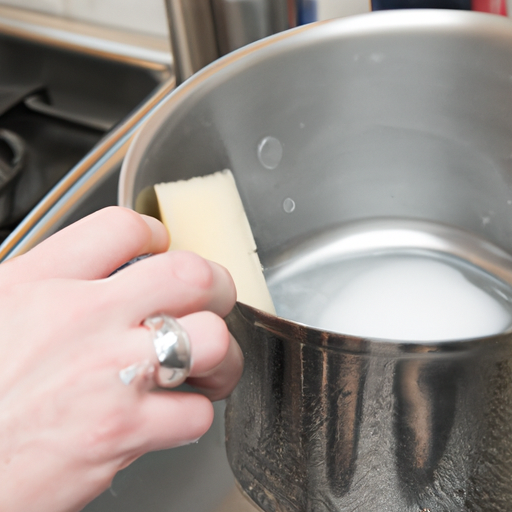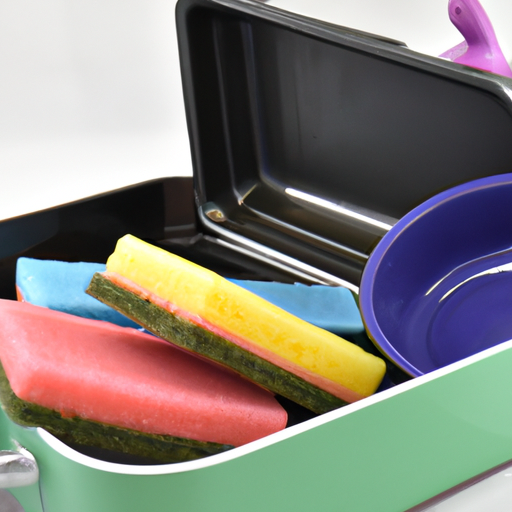Sarah123
These tips really helped me clean my cookware effectively. Thank you!

When it comes to cleaning your cookware, it's important to choose the right cleaning products. Avoid using abrasive cleaners or steel wool, as they can damage the surface of your pots and pans. Instead, opt for gentle dish soap or specialized cookware cleaners that are designed to remove stubborn stains without causing any harm.
Stubborn stains on your cookware can be frustrating to deal with. To remove burnt-on food or stains, fill the pot or pan with warm water and add a few drops of dish soap. Let it soak for a few hours or overnight. Then, use a non-abrasive sponge or scrub brush to gently scrub away the stains. For tougher stains, you can create a paste using baking soda and water and apply it to the affected area. Let it sit for a while before scrubbing.
Rust can sometimes develop on the surface of your cookware, especially if it's made of cast iron. To remove rust, make a paste using equal parts lemon juice and salt. Apply the paste to the rusted area and let it sit for a few hours. Then, scrub the area gently with a sponge or scrub brush. Rinse thoroughly and dry the cookware completely to prevent further rusting.
If you have non-stick cookware, it's important to take extra care during cleaning. Avoid using metal utensils or abrasive scleaners that can scratch the non-stick surface. Instead, use soft sponges or brushes and gentle dish soap to clean your non-stick pots and pans. Avoid stacking them to prevent scratching, and always dry them thoroughly before storing. If the non-stick coating starts to wear off, it's time to replace the cookware to ensure safe and effective cooking.
Proper storage and maintenance are key to prolonging the life of your cookware. After each use, make sure to wash your pots and pans thoroughly and dry them completely. Avoid stacking them inside each other, as this can cause scratches and damage. If your cookware has lids, store them separately to avoid scratching the surfaces. Additionally, consider using protective liners or cloth between stacked cookware to prevent scratches.

| Cookware Type | Cleaning Method | Maintenance Tips |
|---|---|---|
| Stainless Steel | Use mild dish soap and non-abrasive sponge | Dry thoroughly to prevent water spots |
| Cast Iron | Avoid soap, use salt and oil for cleaning | Season regularly to maintain the non-stick surface |
| Copper | Use specialized copper cleaners | Polish regularly to maintain shine |
| Non-Stick | Gentle dish soap and soft sponge | Avoid metal utensils and stacking |
By following these cookware cleaning tips and techniques, you can keep your pots and pans looking like new for years to come. Regular cleaning and maintenance will not only ensure proper hygiene but also enhance the performance and longevity of your cookware.
Sarah123
These tips really helped me clean my cookware effectively. Thank you!
CookingQueen
As someone who loves cooking, I found this article to be incredibly useful. The tips are practical and easy to follow.
FoodieChef
Some of the tips were helpful, but I wish there were more specific instructions for certain types of cookware.
KitchenWarrior
I've always struggled with cleaning my cookware, but this article has given me the knowledge and confidence to tackle even the toughest stains. Highly recommended!
HealthyEater
I appreciate the tips on maintaining non-stick cookware. It's something I've always been concerned about, and now I know how to properly care for it.
|
|
Jordon Auer is a culinary expert with years of experience in the field. As a professional chef, Jordon understands the importance of proper cookware cleaning and maintenance. Through extensive research and practical knowledge, Jordon has developed effective techniques to keep cookware in top condition. |